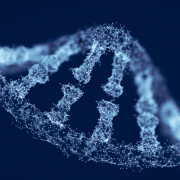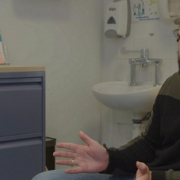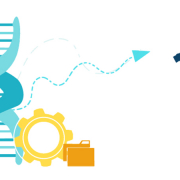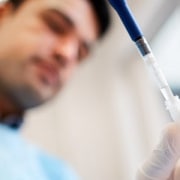Patient perspectives: the art of good communication
In the second article covering our recent patient panel event, we consider the issue that both panellists and audience members agreed was most important
On 6th March, we partnered with Progress Educational Trust to hold a panel event in Birmingham as part of Genomics Conversation week. The event focused on the experiences of patients who have been through genomic testing, and the ways in which health professionals can best support them.
Many important points arose during the discussion, and last week’s article focused on preparing patients for the challenges that genomic testing may entail.
This week’s article will look at the biggest single message to come out of the event – agreed by the panellists and the audience contributors – that patients and carers want more communication with their clinicians, and in many cases better communication.
On the panel were Claudia Beard, whose son Trent has an undiagnosed condition that includes autism and epilepsy; Sabine Starr has dystonia – a rare neurological disorder that has affected several generations of her family; and Charles Stewart, a genomic scientist whose daughter has a type of epilepsy called West Syndrome and his son has periventricular leukomalacia, a form of brain damage; both children were born prematurely and have cerebral palsy. All three panellists are members of the 100,000 Genomes Project’s Participant Panel.
Every interaction is important
“Results conversations, or no results conversations. The worst thing when you are in the midst of the journey is the silence and waiting.” Claudia
When we talk about conversations with patients undergoing genomic testing, there is always a focus on conversations around consent, and around delivering results. Undoubtedly, these are two crucial stages in the journey, but for patients or their carers, every interaction is important and should be handled with sensitivity and compassion.
Claudia relayed how, upon attending an appointment with her son, she found out that the results of a test that she had been anxiously awaiting had actually been delivered to the specialist months before, but nothing had been communicated to the family. In that instance there were no significant or actionable findings to deliver, but just keeping communications open could had prevented months of needless worry.
Other panellists and audience members shared positive and negative experiences of being given difficult results, both in person and by post. Our previous article by Jillian Hastings Ward, chair of the 100,00 Genomes Project participant panel, has lots of helpful tips about delivering results.
Signpost other resources
“The leaflets certainly help. [When you receive a diagnosis] you don’t remember a lot and it’s something to go back to when the dust settles, and then you’ve got something that is clinically approved.” Charles
After patients receive a diagnosis, they will almost certainly have questions, and will think of further questions over days and weeks as the information sinks in, especially if the result was not expected.
As mentioned above, if they are able to contact someone on their clinical team that would usually be the preferred option. However, when this is not possible, it can be helpful to signpost patients to other sources of information, help and support.
This can include factual information to understand their diagnosis – although this can be difficult with conditions where symptoms vary, as online resources cannot be tailored to their exact symptoms. Patient support group and organisations can also be enormously valuable.
“I happened to come across a charity called SWAN UK, which supports families with children who are undiagnosed. Unfortunately, none of Trent’s doctors/therapists had told us about SWAN. They have been an amazing organisation, and when you are on this unknown path it is comforting to know there are others out there who truly understand.” Claudia
Where patients don’t know where to turn to have their questions answered, they are likely to turn to ‘Dr Google’, which can lead to unnecessary stress and worry.
That’s not to say that Google has no value – many patients find it extremely useful – but it is probably more helpful when the person already has some background knowledge to put things in perspective.
Know (and respect) your audience
“I’ve worked hard to understand what I can do to have a positive effect on my own symptoms, and while I know doctors can’t necessarily prescribe those things, who’s to say that because something is a trigger for me, it isn’t for others too?” Sabine
Patients, and their carers, often become experts in their own conditions, both in terms of accumulating observations and seeing patterns emerge in their everyday symptoms, but also in educating themselves to extraordinarily high standards and keeping up-to-date with the latest scientific papers.
“Nothing will motivate you as much as you being ill, or your child being ill. You will become the expert on your disease. As a doctor or a healthcare worker, you will have patients coming to you who will be world-leading experts on their disorders, and they will know about genetics and they will know about genome sequencing, and they will expect you to know.” Charles
The importance of health professionals being equipped to support patients through genomic testing is clear, and there are many factors to consider. However, as panellist Sabine Starr noted, their most positive interactions with clinicians have been when they simply listened – a skill we all can employ.
–









